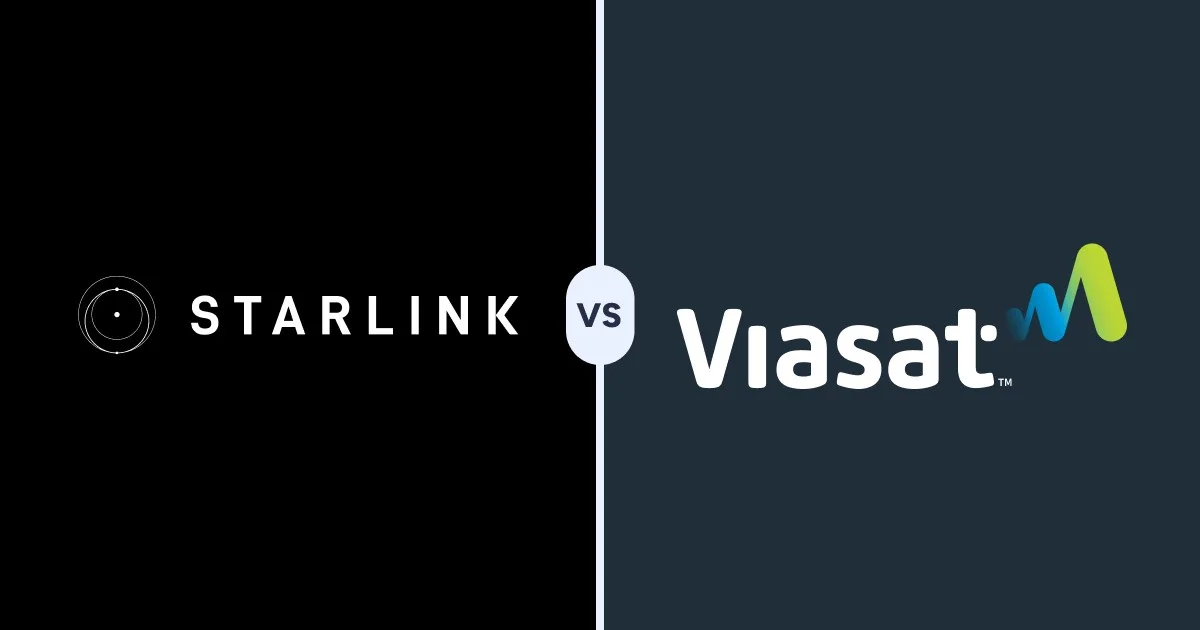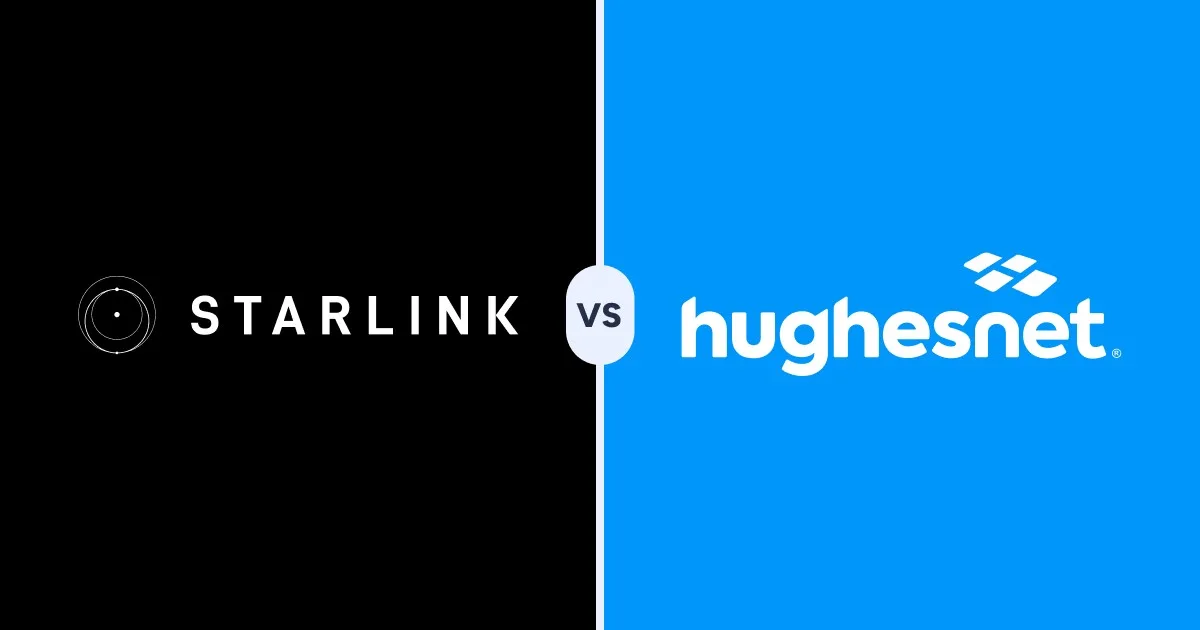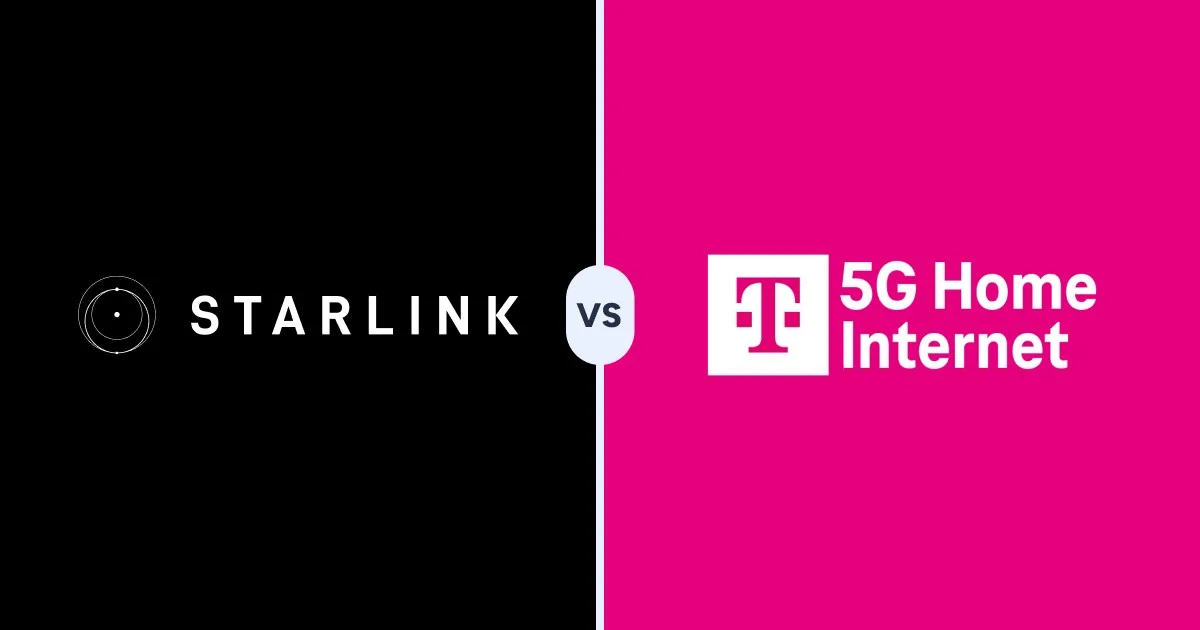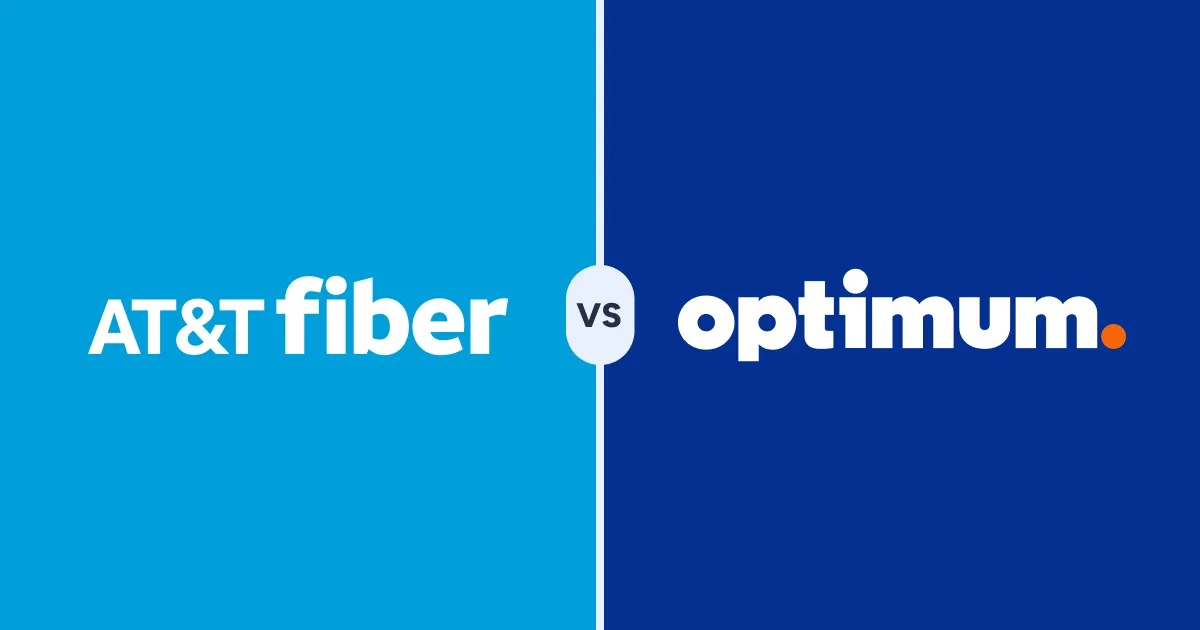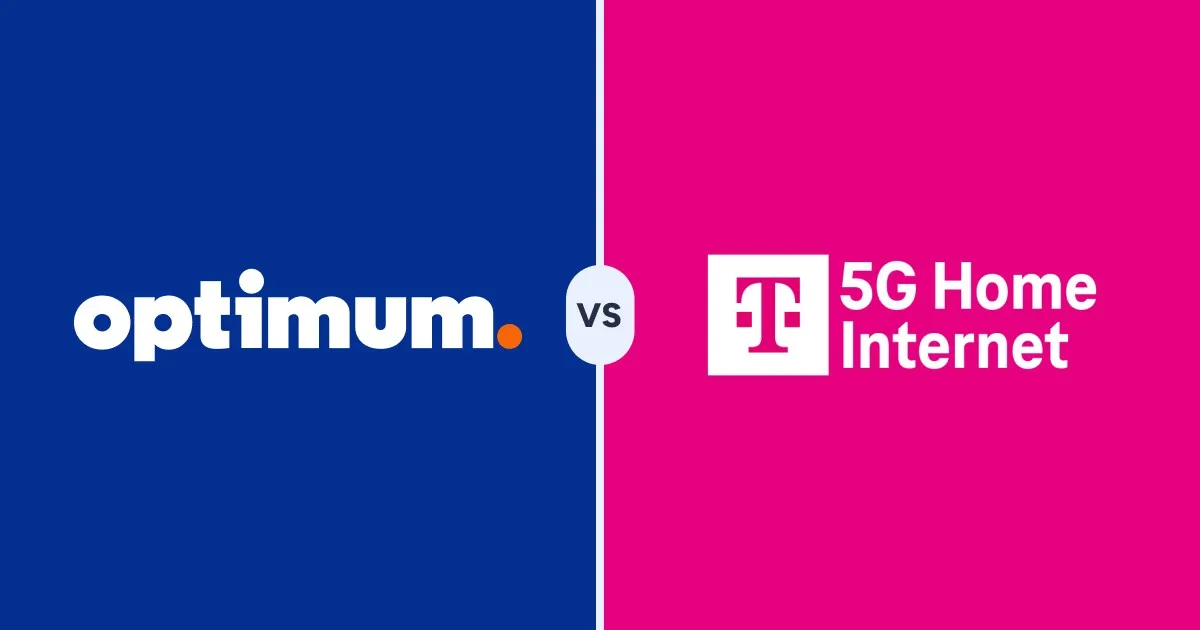AT&T vs. Cox: Which Internet Provider Is Best for You?
Jan 22, 2026 | Share
Provider Comparisons (Versus)
-
Best speeds for the price
- Price: $45–$155/mo.
- Speed: 100–5,000Mbps
- Internet type: Fiber, DSL, fixed wireless
- Data cap: Unlimited for fiber; 350GB for fixed wireless; 1TB for speeds 75Mbps and under
-
Best availability and budget packages
- Price: $55–$115/mo.for 24 mos.
- Speed: 300–2,000Mbps
- Internet type: Cable
- Data cap: 1.2TB
Data as of 12/23/2025. Offers and availability may vary by location and are subject to change.
Compare AT&T and Cox head to head
AT&T fiber plans give you fast speeds and unlimited data at a decent price, making this provider a great pick for most people. AT&T’s very adequate 300Mbps plan costs just $55 per month, but you also have the option to get obscenely fast multigigabit speeds if you’re willing to pay more.
Like AT&T, Cox also offers 1 gig speeds, but its cable connection doesn’t have the impressive upload speeds of AT&T fiber. Cox also has steep price hikes that kick in after 24 months. Still, Cox budget packages are solid if you don’t need the fastest speeds (and most people don’t).
Pros and cons: AT&T vs. Cox
 Pros:
Pros:
- Lots of fiber-optic plans
- No annual contracts
- No data caps on fiber plans
 Cons:
Cons:
- Limited access to the fastest plans
- Unpredictable DSL speeds
 Pros:
Pros:
- Top-rated customer service
- Lots of bundle options
- No-contract options
 Cons:
Cons:
- Data caps on all plans
- Huge price hikes after 12 months
Want to see what plans are available in your area?
Enter your zip code below.
In this comparison:
Plans and pricing | Extra fees | Customer ratings | Bundles | Internet connection types | Data caps | Contracts | Installation | Availability
In this comparison:
Plans and pricing: AT&T vs. Cox
AT&T offers a range of internet plans over fiber-optic, DSL, and fixed wireless connections. The fiber plans give you the best deal, but they’re also not as widely available as other connection types. Cox provides cable internet at multiple tiers, from a cheap 300Mbps plan to more expensive gigabit service.

Pro tip:
Not sure what sort of plan you’re looking for? Use our How Much Speed Do I Need tool to get an idea of the kind of internet speed you’ll want based on what you do and how many people share your Wi-Fi.
AT&T plans and pricing
| Package | Price | Speed | Type |
|---|---|---|---|
| Internet 100 | $45/mo.† | 100Mbps | Fiber |
| Internet 300 | $55/mo.* | 300Mbps | Fiber |
| Internet 500 | $65/mo.* | 500Mbps | Fiber |
| Internet 1000 | $80/mo.† | 1,000Mbps | Fiber |
| Internet 2000 | $125/mo.† | 2,000Mbps | Fiber |
| Internet 5000 | $155/mo.† | 5,000Mbps | Fiber |
| Internet Air | $60/mo.‡ | 75–225Mbps | Fixed Wireless/5G |
Read disclaimers.
AT&T has a bunch of fiber internet plans, with speeds going up to a startling 5,000Mbps (5Gbps)—that’s the fastest possible speed you can get from any major internet provider anywhere in the United States. Do you need 5Gbps speeds? Honestly, probably not.
You can’t do much better than $55 per month for the 300Mbps plan. That’s a generous speed, ideal for a household of several people, and it’s not too shabby of a price either. Plus, you can always cancel your plan without facing early termination fees (ETFs).
If you live in a rural area, you can get AT&T’s Fixed Wireless Internet, which is designed for internet users living in places where few internet options are available.
Try AT&T Internet Air as a cheap and speedy DSL alternative
AT&T has been slowly phasing out its DSL service, and recently it launched AT&T Internet Air as a 5G alternative. Similar to the fixed wireless plan, Internet Air uses AT&T’s cellular network to get you a connection, only in this case it works over 5G transmitters that give users much faster speeds and lower latency. The plan is cheap and doesn’t come with extra fees or data overage charges, so you’re getting a sweet deal for a robust 5G broadband connection.

Pro tip:
Curious to know more about fixed wireless internet? Read our fixed wireless guide for details on how much it costs and where you can get it.
Cox plans and pricing
| Package | Price | Speeds |
|---|---|---|
| Fast | $55/mo.* for 24 mos. | Up to 300Mbps |
| Go Even Faster | $85/mo.* for 24 mos. | Up to 500Mbps |
| Go Super Fast | $100/mo.* for 24 mos. | Up to 1,000Mbps |
| Cox Go Beyond Fast | $115/mo.* for 24 mos. | Up to 2,000Mbps |
Read disclaimers.
Cox has an array of cable plans that let you choose between saving money or getting faster speeds. None of the plans quite compare to AT&T’s fiber offerings—for example, Cox’s Go Even Faster plan costs $15 more per month and is slower than AT&T’s Internet 500 plan. Also, each of these plans comes with a fairly steep price hike after two years.
Still, Cox gets you fast speeds and reliable service. And you’re more likely to find a cable plan through Cox than you would a a fiber plan from AT&T. So Cox is going to be the fast option for most netizens.
Looking for an easy way to test and track your internet speed?
Take our internet speed test or download our free speed test app to test your speed from anywhere.
Download our free, easy-to-use speed test app for quick and reliable results.

Deals and Promotions: AT&T vs. Cox
- Get a reward card worth up to $200 when you sign up for 2-Gig or 5-Gig plan from AT&T Fiber by June 1, 2026
- Save 20% every month when you bundle unlimited wireless with home internet from AT&T
- Get up to $20 off your AT&T fiber internet plan every month for a year
_
- Get a price lock guarantee for up to five years and unlimited data when you combine an unlimited mobile line with select internet speeds
- Get a gift card worth $125 when you refer a friend to Cox and earn up to $600 per year
- Veterans and community servants with GovX eligibility can get a gift card worth up to $200 with certain Cox home internet plans
Extra fees: AT&T vs. Cox
Data as of 2/15/2023. Offers and availability may vary by location and are subject to change.
AT&T and Cox both charge for professional installation, but you can opt for a self-install option to cut extra fees off your bill.
As for equipment, for a monthly fee your provider gives you everything you need to get online after you sign up. This includes a modem, a router, and a cable box or DVR if you get TV service. But you can buy your own equipment to save money.
The nice thing about included equipment is it’s guaranteed to work with your service, and if you run into trouble, it’ll be covered by your provider. AT&T doesn’t charge for a router and modem on fiber plans, while Cox has a $12 per month rental fee for its Panoramic Wifi Gateway (a modem/router combo).

Pro tip: Use your own router
Most providers will allow you to use your own equipment and skip the rental fees if you like—there are lots of options out there.
This can be nice if you like customizing your equipment. For example, if you need something faster, check out a powerhouse like the Linksys EA7500. If you need more range, grab one of our recommended long-range routers for whole-home coverage.
Customer ratings: AT&T vs. Cox
Rankings from HighSpeedInternet.com’s annual customer satisfaction survey.
AT&T and Cox both earned high scores in our annual customer satisfaction report. Customers ranked them the same in speed and customer service, but AT&T customers are slightly more satisfied with their service’s reliability than Cox customers. Both AT&T and Cox received their lowest scores in the price category, but AT&T handsomely beat Cox with a 3.7 satisfaction score compared to Cox’s 3.4.
Neither ISP has glaring faults—both ranked in the top half of 12 in every category. You’ll probably get satisfactory service from either one. But numbers-wise, AT&T has happier customers.

Pro tip:
Not sure what kind of speeds you need? Take our speed test to find out how fast your current internet is as a base of comparison.
Best TV and internet bundles
| Package | Internet speed | TV channels | Price | Details |
|---|---|---|---|---|
| Cox Go Even Faster + Contour TV Starter | 500Mbps | 75+ | $131/mo.* for 24 mos. | View Plans |
| Cox Go Even Faster + Contour Preferred | 500Mbps | 140+ | $185/mo.* for 24 mos. | View Plans |
| Cox Go Even Faster + Contour Ultimate | 500Mbps | 250+ | $222/mo.* for 24 mos. | View Plans |
| DIRECTV ENTERTAINMENT™ + AT&T Fiber Internet 300 | 300Mbps | 165+ | $129.99/mo.† for 24 mos. Plus taxes and fees | |
| DIRECTV CHOICE™ + AT&T Fiber Internet 300 | 300Mbps | 200+ | $144.99/mo.‡ for 24 mos. Plus taxes and fees |
Read disclaimers.
It makes a lot of sense to bundle your internet and TV with one provider. Not only will you get a simpler bill, but also you’ll usually get a better deal.
Cox offers bundles with its own cable TV service, Cox Contour . Contour is a solid all-around TV service with a good channel selection. There are cheaper bundling options available with Cox Counter Stream Player, which gives you streaming TV service instead of wired cable TV. If you want to bundle a Cox internet plan with cable TV, you can pair any of the Cox internet plans (300–2,000Mbps) with any Cox TV plan (75–250 channels).
AT&T bundles it’s internet packages with DIRECTV, so you can get AT&T’s plan variety and up to 150 channels. You can stream DIRECTV to any TV without a satellite dish. You can also get traditional satellite TV service if you can’t get high-speed internet.
Are AT&T and Cox available in your area?
Enter your zip below to find out.
Internet connection types: AT&T vs. Cox
| Internet type | Details | |
|---|---|---|
| Fiber, fixed wireless | ||
|
| Cable, fiber | View Plans |
AT&T primarily offers fiber-optic internet, but it also has fixed-wireless connections for rural customers. Cox’s network is built on cable lines. In terms of speed and reliability, fiber is by far the best—AT&T can get you up to 5Gbps speeds for downloads and uploads. That’s among the fastest internet plans ever from a major provider.
Cable is also fast and reliable. But while Cox can get you 1,000Mbps download speeds, your upload speeds will generally be much slower. Keep that in mind if you plan to do upload-intensive tasks like uploading content to social media, hosting livestreams, or attending Zoom meetings.

Pro tip:
Not sure what kind of internet you have? You can get more information by reading our guide to internet connection types.
AT&T vs. Cox: Data caps
| Data Cap | Details | |
|---|---|---|
| No cap for fiber plans; 1TB for speeds up to 75Mbps; 350GB for fixed wireless | ||
|
| 1.25TB | View Plans |
AT&T has no data caps for customers on its fiber internet plans. AT&T’s fixed wireless package has a relatively small 350GB data cap.
Cox gives all of its customers a 1.25TB data cap. That’s going to be plenty for most users, though heavy streamers may run into some trouble.
AT&T vs. Cox: Contracts
| Contract length | Details | |
|---|---|---|
| No contract for fiber or AT&T TV | ||
|
| 1 yr., month-to-month option for $10.00/mo. extra | View Plans |
You won’t need to worry about an annual contract if you sign up with AT&T—all of its internet plans go month to month, so you can cancel any time without worrying about an early termination fee.
Cox gives you the option between signing up for a one-year contract or paying $10 a month extra for a month-to-month option. The early termination fee on the annual contract is $10 for each month you have left on your bill. So, you’ll save a little money by signing a contract, but you might have to pay up in the end if you cancel before it’s over.
AT&T vs. Cox: Installation
| Installation options | Details | |
|---|---|---|
|
| View Plans |
Data as of 2/15/2023. Offers and availability may vary by location and are subject to change.
AT&T and Cox both charge fees for a professional installation, but there are a few tricks to help ease the bill. AT&T offers a free self-install kit, so you don’t have to pay $99 for professional installation.
Cox charges $100 for professional installation of its internet service, but you can get a self-installation kit at no extra charge.
AT&T vs. Cox: Availability
AT&T and Cox both offer service in a similar number of states: twenty-one states for AT&T and eighteen for Cox. AT&T tends to have more coverage overall, with wider availability in each state.
Ready to make the switch?
To find out if you can get either of these providers, type in your zip code below to see if they’re available in your area.
Final call: AT&T vs. Cox
We think AT&T is the best bet of these two providers—just make sure you can get a fiber-optic plan. AT&T’s fiber packages give you faster speeds and a more reliable connection type compared to Cox’s plans.
The catch? AT&T Fiber is a lot harder to come by than Cox’s cable internet, and AT&T’s DSL offerings really aren’t worth the price. If fiber isn’t available where you live, stick with a Cox cable internet plan, even if it costs a bit more than DSL.
Methodology
Our HighSpeedInternet.com editorial team bases our analyses on customer input from our annual customer satisfaction survey, results from our speed test tool, and proprietary internet provider data on speeds and pricing. To strengthen our research, we look closely at provider contracts to get hard-to-find information on price hikes, data caps, and extra fees, and we keep tabs on the latest news reports and online reviews. When applicable, we also rely on our personal experiences testing these services.
Additional resources
Disclaimers
AT&T plans and pricing
* Price after $5/mo Autopay & Paperless bill discount (w/in 2 bills). Plus taxes & fees. Monthly State Cost Recovery Charge in TX, OH, NV applies. One time install charge may apply. Ltd. avail/areas. Call or go to www.fiber.att.com to see if you qualify. Speeds based on wired connection. Actual speeds may vary. For more info, go to www.att.com/speed101.
† Price after $5/mo Autopay & Paperless bill discount (w/in 2 bills). Plus taxes & fees. Monthly State Cost Recovery Charge in TX, OH, NV applies. Ltd. availability/areas. Speeds based on wired connection. Actual speeds may vary. For more info, go to www.att.com/speed101.
‡ $60/mo after $5 discount when enrolled in Autopay. Paperless billing req’d. Not available in NY. Monthly State Cost Recovery Charge in TX, OH, NV applies. . Service subj. to Internet Terms of Service at att.com/internet-terms. Offers may be modified, or discontinued, at any time without notice. Other conditions may apply to all offers. Speeds based on wired connection. Actual speeds may vary. For more info, go to www.att.com/speed101.
Cox plans and pricing
* No Term Agreement. 2 Year Price Guarantee. Pricing, packages, and policies are subject to change, including when adjusting or removing services or equipment. Prices do not include applicable taxes, surcharges, usage-based charges (such as data, toll usage, pay-per-use service), and other fees. After any promotional period, regular rates apply (see www.cox.com).
† Available in select markets only. No annual contract or cancellation fees.
Best TV and internet bundles
* Prices include applicable monthly recurring service fees and applicable discounts. Excludes charges for existing Cox services. Additional one-time charges, activation fees and monthly equipment fees may apply. Prices do not include applicable taxes, usage-based charges, fees, and surcharges, which are subject to change. Prorated charges may appear on your bill if you change services before the bill cycle is complete.
† Plus taxes & fees. ($144.99/mo. w/req’d DIRECTV fees) TV pkg price for 24 mos. and req’s. 24-mo. agmt.
‡ Plus taxes & fees. ($177.98/mo. w/req’d DIRECTV fees) TV pkg price for 24 mos. and req’s. 24-mo. agmt.
Author - Peter Holslin
Peter Holslin has more than a decade of experience working as a writer and freelance journalist. He graduated with a BA in liberal arts and journalism from New York City’s The New School University in 2008 and went on to contribute to publications like Rolling Stone, VICE, BuzzFeed, and countless others. At HighSpeedInternet.com, he focuses on covering 5G, nerding out about frequency bands and virtual RAN, and producing reviews on emerging services like 5G home internet. He also writes about internet providers and packages, hotspots, VPNs, and Wi-Fi troubleshooting.
Editor - Cara Haynes
Cara Haynes has been editing and writing in the digital space for seven years, and she's edited all things internet for HighSpeedInternet.com for five years. She graduated with a BA in English and a minor in editing from Brigham Young University. When she's not editing, she makes tech accessible through her freelance writing for brands like Pluralsight. She believes no one should feel lost in internet land and that a good internet connection significantly extends your life span.


